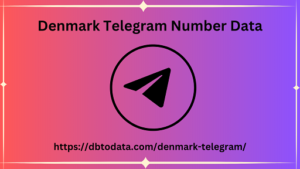Post by amirmukaddas on Mar 13, 2024 5:15:43 GMT
One day, while I was working I received an email which was followed by a long phone call. It was Enrico Flaccovio , who proposed that I publish a book in which I would put on paper my experiences, studies and all my professional experience of the last few years. An extraordinary and intimate adventure, the last challenge or perhaps the first, a question of point of view. Buy the second edition now The manual does not limit itself to structuring my thoughts as you find them expressed day after day on Seogarden, but builds a path that, passing through the various stages of basic and advanced SEO, addresses for the first time the optimization practices for search engines with an approach no longer based on the fact that Google is a software , but looking at people , their interactions and search intentions as aspects that can have a direct influence on rankings. Why is my book different? While all the books written so far on SEO are texts based on approaches borrowed from information technology and marketing, the challenge of the SEOgardening manual was to develop a (now necessary) meeting point between search engines and social sciences .
I don't deal with code for two excellent reasons, the first is that many valid texts in circulation have already addressed the SEO topic from this perspective, the second is that as a sociologist I have always been more interested in the relationships between people and how these small or large institutions capable of conveying meanings and research trends were developed . SEO optimization is essential to make a website visible, but Denmark Telegram Number Data only with a method based on a certain way of observing , can you define the relationships between objects of knowledge , the famous "entities" and translate everything into structured content in such a way as to understand to Google that your website is certainly one of the few to have captured a latent question hidden among the explicit questions that your competitors continue to bust their heads over every day. The contributors I sincerely thank Jacopo Matteuzzi , Dario Ciracì , Cinzia Di Martino , Riccardo Esposito , Davide Pozzi , Benedetto Motisi , Salvatore Russo and Riccardo Scandellari for their contribution to my book and above all for having participated in this editorial project by giving me their point of view on the SEO world.

Without them, this text would certainly have had less lustre. Why buy my book? One of the problems with SEO books is that they require continuous upgrades that come out in the form of new editions, because being based on Google's software, they suffer from a fairly high level of obsolescence . One of the intentions I had from the beginning was to write a text on SEO that would remain relevant for another 5 or 10 years. Once things were done and with a hint of presumption, I understood that I had succeeded. Google can still change (and will change) a lot, but the assumptions described in the manual are such that the search engine will not be able to help but take them into consideration in the future too, because they investigate and develop the very characteristics on the basis of which the demand for content from groups of users who have certain characteristics in common. These characteristics are all social. If anything, it is the scanning software that has to adapt to them, meaning that the further we go in time, the more current the SEOgardening manual will become.
I don't deal with code for two excellent reasons, the first is that many valid texts in circulation have already addressed the SEO topic from this perspective, the second is that as a sociologist I have always been more interested in the relationships between people and how these small or large institutions capable of conveying meanings and research trends were developed . SEO optimization is essential to make a website visible, but Denmark Telegram Number Data only with a method based on a certain way of observing , can you define the relationships between objects of knowledge , the famous "entities" and translate everything into structured content in such a way as to understand to Google that your website is certainly one of the few to have captured a latent question hidden among the explicit questions that your competitors continue to bust their heads over every day. The contributors I sincerely thank Jacopo Matteuzzi , Dario Ciracì , Cinzia Di Martino , Riccardo Esposito , Davide Pozzi , Benedetto Motisi , Salvatore Russo and Riccardo Scandellari for their contribution to my book and above all for having participated in this editorial project by giving me their point of view on the SEO world.

Without them, this text would certainly have had less lustre. Why buy my book? One of the problems with SEO books is that they require continuous upgrades that come out in the form of new editions, because being based on Google's software, they suffer from a fairly high level of obsolescence . One of the intentions I had from the beginning was to write a text on SEO that would remain relevant for another 5 or 10 years. Once things were done and with a hint of presumption, I understood that I had succeeded. Google can still change (and will change) a lot, but the assumptions described in the manual are such that the search engine will not be able to help but take them into consideration in the future too, because they investigate and develop the very characteristics on the basis of which the demand for content from groups of users who have certain characteristics in common. These characteristics are all social. If anything, it is the scanning software that has to adapt to them, meaning that the further we go in time, the more current the SEOgardening manual will become.

